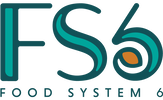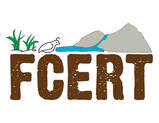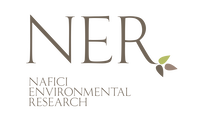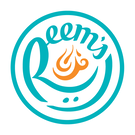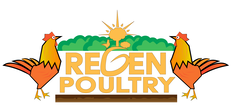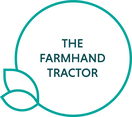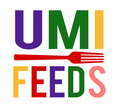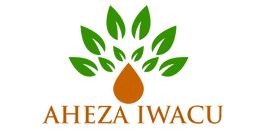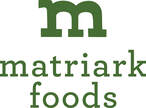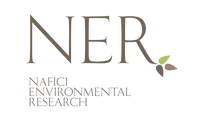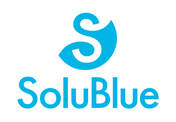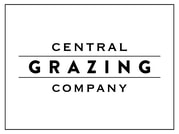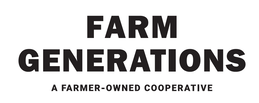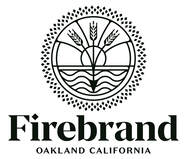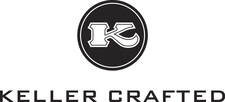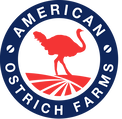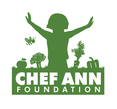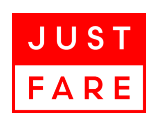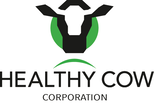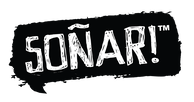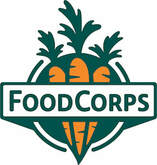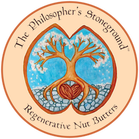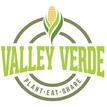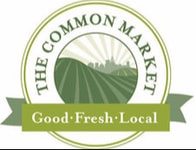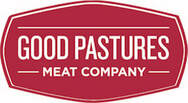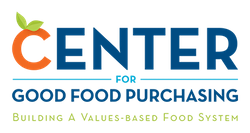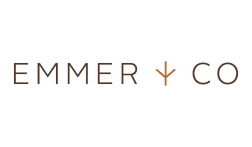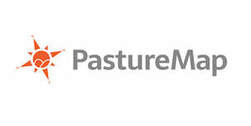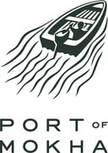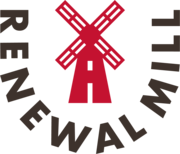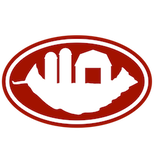Meet the FS6 Portfolio
Food System 6 is excited to be working with entrepreneurs changing the food system. Our portfolio represents innovation across the full food and agricultural value chain and their work integrates the key dimensions of environmental, physical, and social health that FS6 seeks to achieve in the food system. We seek out exceptional entrepreneurs whose innovations have the potential for transformative impact on our food system and can achieve the financial success that is required for long-term sustainability. |
|
Cohort 7
|
Farm to Pantry (Sonoma Country, CA): Farm to Pantry is a non-profit gleaning organization that rescues unharvested produce from farms & backyards across Sonoma County and distributes it to families facing food insecurity. Their mission is to cultivate good health, community, and environmental sustainability by diverting fresh, local food that would otherwise go to waste, and sharing it with those in need. With the help of over 300 volunteers, 250+ farms, and 85+ community partners, Farm to Pantry has rescued over 3 million servings of fruits and vegetables since inception in 2008.
|
|
Ferry County Edible Resource Team (FCERT) (Ferry County, WA): Ferry County Edible Resource Team (FCERT) is a consultation and startup service supporting sustainable micro-agricultural solutions across Ferry County, WA. They provide startup assistance, logistics support, continuing education, and R&D to those furthering the effort to build a more resilient, healthy, and prosperous rural landscape. At FCERT, they believe the future of agriculture is small, family-owned, regional, and sustainable.
|
|
Kitchen 66 (Tulsa, OK): Kitchen 66 (K66) is the first food incubator and kick-start kitchen in Tulsa, OK. They support Tulsa-based food entrepreneurs in decreasing barriers to success by providing three key resources: affordable commercial kitchen space, business training programs, and sales and distribution channels. Kitchen 66 is a nonprofit program of the Lobeck Taylor Family Foundation.
|
|
NAFICI Environmental Research (West Sussex, UK): NAFICI Environmental Research transforms agricultural waste into pulp for paper and packaging through a patented, low-carbon solution called EcoPulping. EcoPulping offers an economic and sustainable option for utilizing the large amounts of surplus agricultural waste (often burnt, or left to rot), while decreasing the use of wood pulp derived from trees. Every tonne of EcoPulp produced saves up to 1 tonne of CO2 emissions.
|
|
Open Food Network USA (Bend, OR): Open Food Network (OFN) is a not-for-profit organization helping to build a new food system that’s fair, local, and transparent. They are enabling new, ethical supply chains through their open-source platform - where food producers, wholesalers, food hubs, and shops can buy and sell online to anyone using OFN. This virtual market solution brings communities together, building a more resilient local food economy.
|
|
Reem's California (Bay Area, CA): Reem's California is an Arab street corner bakery and restaurant with two locations in the Bay Area. They connect people across cultures and experiences through the warmth of Arab bread and hospitality. The Reem’s vision is to build a strong resilient community with good jobs, nourishing food, and a sense of home for all.
|
|
Regenerative Poultry Systems (Northfield, MN): Regenerative Poultry Systems provides virtual and hands-on regenerative poultry training and business services for farmers and agriculture service providers. Their mission is to ease the transition of the poultry industry to a regenerative model that relies on the proven ancestral system centered on returning poultry to their original habitat. The Regenerative Poultry System is designed to accelerate the transition of BIPOC farmers, as well as established industry leaders and farmers, into regenerative poultry, resulting in measurable and scalable social, ecological, and economic impacts.
|
|
the FarmHand tractor (Jordan, UT): the FarmHand tractor is not your traditional tractor. It is an all-electric, solar-powered, and remote-controlled tractor for small, sustainable market farmers. The open-source design allows others to design flexible add-ons for a variety of on-farm needs - from weeding to harvesting - with minimal impact to the environment. the FarmHand tractor provides a flexible alternative to large, cost-prohibitive equipment for farms of all sizes.
|
|
Umi Feeds (Atlanta, GA): Umi Feeds is a food rescue nonprofit dedicated to serving healthy and nutritious meals from donated surplus foods that are redistributed to those who are hungry, homeless, and food insecure. Umi Feeds provides education, community engagement, and a mobile food market for the seniors, low-income, and homeless citizens of Atlanta, GA.
|
Cohort 6 - Circular Economy Cohort
Visit the Circular Economy Program page to learn more.
|
AHEZA IWACU is an optimized waste management solution in Burundi, focused on extending the life cycle of organic, plastic, and other household waste through collection, upcycling, and recycling services. They utilize these waste streams by transforming refuse into a valuable resource and selling natural-organic and upcycled-plastic materials back into the community. AHEZA IWACU is also educating households on waste sorting and bio-intensive agricultural practices in an effort to fight food insecurity and ensure an equitable and ecologically sustainable future
|
|
Andes Ag is harnessing the power of microbes to develop novel seeds and plants for a future generation of regenerative agriculture. The company has developed the world's first efficient and shelf-stable integration of agricultural seeds and microbes, Microprime, which enables higher yields and increased nitrogen capture from the air while sequestering carbon in the soil. The implementation of the Microprime technology will decrease industry dependence on synthetic nitrogen and increase carbon sequestration directly impacting climate change
|
|
The Cooperative Food Empowerment Directive (CoFED) is building a cooperative food economy, powered by the visionary leadership of young people of color. They partner with food and land co-ops across the US and Canada to embody cooperative values and economics. CoFED provides technical assistance, political education, capital, and networking opportunities to young QTBIPOC (Queer, Trans, Black, Indigenous, People of Color) food and land cooperators. They are building a network of food and land cooperatives led by QTBIPOC cooperators.
|
|
Matriark Foods upcycles farm surplus and fresh-cut remnants into healthy, delicious, products for foodservice: schools, hospitals, and foodbanks. They partner with farmers, aggregators, and fresh-cut vegetable facilities to divert waste streams at a disruptive scale, feed large numbers of people, and build a better food system. Matriark Foods is part of a movement to maximize the value of our natural resources and create a sustainable, circular economy that supports the well-being of people and the preservation of nature
|
|
mobius converts the unavoidable organic waste streams from food, forestry, and agriculture into renewable chemicals and biodegradable materials - using the tools of biology, chemistry, and engineering. Their first materials are lignin-based biodegradable plastics, which are designed to return to nature at the end of their useful life. The mobius mission is to create a world where there's wonder in waste.
|
|
Nafici enables innovative fiber-based packaging solutions through EcoPulping, a patented low-carbon process that transforms agricultural residues into paper pulp. EcoPulping is an economic, low carbon and sustainable solution for using large amounts of surplus agricultural waste (often burnt, or left to rot) to replace wood pulp derived from trees. Every tonne of EcoPulp produced saves almost 1 tonne of CO2 compared to the equivalent wood pulp production and transportation.
|
|
Rhizoform bio-fabricates mycelium-based alternatives to the plastic foam for thermally insulated packaging. Their first product, RhizoBox, is a fully biodegradable thermal cooler that keeps food and medicines fresh, cuts greenhouse gas emissions, and curbs plastic waste. By providing a compostable alternative to plastic foam containers, their technology keeps plastic pollution out of the food chain and out of the world’s oceans, enriches the soil, and sequesters carbon.
|
|
SoluBlue has developed a sustainable seaweed-based alternative to plastic and bioplastic food packaging, which extends shelf-life and reduces food waste. SoluBlue packaging looks and feels like plastic, but is breathable and hydrophilic, absorbing excess moisture from food and preventing mold growth. Not only does the SoluBlue packaging extend shelf life – it gradually dries food over months, providing a second life. Their packaging is biodigestible, making it safe for marine life, and is home compostable, biodegrading as quickly as the food it contains.
|
Cohort 5
Learn more about the C5 entrepreneurs and watch the Forum Event recording here.
|
Central Grazing Company (CGC) is restoring the midwestern prairie through holistic and regenerative land management, by producing sustainable food and fiber, and by creating economic incentives for independent, regional and organic farmers. CGC is founded on the principle that the choices we make to feed and clothe ourselves have a huge impact on our planet and lasting effects for people and communities.
|
|
Farm Generations Coop is a farmer-owned software platform that enables small, direct-market farms to streamline administration and to access shared-market support. They provide a technology tool that offers trust, fairness, and a stable foundation for small, sustainable farmers to thrive in the future food economy.
|
|
Firebrand Artisan Breads is a mission-driven bakery that creates high-quality jobs and thriving communities through the craft of baking. Firebrand provides supportive, flexible employment and skills-based training to formerly incarcerated, homeless, and otherwise marginalized members of the community, in an effort to revitalize and elevate these voices across the Bay Area and beyond.
|
|
Keller Crafted Meats (KCM) is a butchery and charcuterie focused on creating and sustaining a farm-direct food chain for regional family farms. As part of their mission to honor animals, regenerate ecosystems, revitalize rural economies, and nourish people, KCM develops and sustains supply chains with regenerative farmers and crafts products that solve for whole-animal utilization.
|
|
Matriark Foods upcycles fresh-cut vegetable remnants and farm surplus into delicious, affordable, low-sodium foodservice products. Their mission is to mitigate greenhouse emissions by reducing food waste while making nutritious options that replace overly-processed products.
|
|
Revel Meat Co. is a USDA processing facility providing humane slaughter and custom cut + wrap services to ranchers across the Pacific Northwest. They also purchase and sell livestock, wholesale and retail, from a small handful of trusted ranchers to ensure fairness and quality across their supply. Revel’s mission is to support small and midsize ranchers in building financial sustainability, in order to preserve local meat markets. Revel Meat Co. is revitalizing humane animal processing as one of the few remaining USDA meat processors in the state of Oregon
|
Cohort 4
For a look at the C4 Innovation Forum, take a look at the event program. You can also download our 2019 Portfolio Overview here.
|
American Ostrich Farms is the leading producer of ostrich in America. Our vertically integrated and family operated farm aims to increase awareness of ostrich as the preferred sustainable animal protein choice. We produce premium quality product with an increased nutritional profile and smaller environmental footprint than any other red meat.
|
|
The Chef Ann Foundation is a national non-profit dedicated to improving school food for kids across the country. Our mission is to provide school communities with the tools, training, resources, and funding that enables them to create healthier food and redefine lunchroom environments. Since 2009, our programs have reached over 3 million kids in 10,000 schools in all 50 states.
|
|
Just Fare is a values-driven food management company offering smart design, empowered people, and responsible food to companies and institutions. They also offer delivery of Mediterranean-inspired, organic food throughout the East Bay. Just Fare aims to transform the institutional food system to do good for the world by prioritizing local supply chains and the wellbeing of all stakeholders.
|
|
HealthyCow is an ag-biotech company developing products to help dairy farmers reduce their reliance on antibiotics and hormones, by engaging the animal’s microbiome, so that they can produce a more wholesome, natural, sustainable, and nutritious milk product.
|
|
Soñar!™ is a Latina-owned organic food company on a mission to empower and nourish a nation of dreamers. We provide at least $10,000 annually, up to 1% of annual sales to advance the mission of the Latino Community Foundation, which exists to unleash the civic and economic power of Latinos by investing in leaders, youth, and change-makers to create a more just, equitable future for all.
|
|
The Curriculum of Cuisine (TCC) brings culinary education back into high schools by turning classrooms into kitchens, and chefs into teachers. Our mission is to ensure that all students graduate with basic culinary skills while supporting academic rigor and advocating for food justice. To do this, we partner with high school teachers and professional chefs to provide hands-on culinary lessons during the school day.
|
Cohort 3
|
AgriDigital develops solutions to real world problems in the agriculture sector. We bring transparency, efficiency and trust to global agri-supply chains by solving three key problems; payment security for farmers and sellers, access to next generation supply chain finance for buyers and provenance and supply chain assurance from farmer to consumer.
|
|
Regrow is the first digital platform to unlock the power and profitability of resilient agriculture through a single, measurable and verifiable system. Regrow combines best-in-class agronomy with soil and carbon modeling to deliver customized, site-specific and scalable solutions to businesses across the supply chain. The company is monitoring fields across over 150M acres for customers across the agrifood supply chain, and supports users in 45 countries around the world.
|
|
Kunoa is a vertically integrated, regenerative Hawaii meat company located on Oahu and Kauai. We manage 2,000 head of cattle, operate Hawaii's largest animal harvesting and meat processing facility, and sell branded Hawaii Grown meat products to retailers, food service, and direct to consumers.
|
|
Most schools spend barely $1 a day on food to feed a child lunch. FoodCorps can improve what that $1 buys. Sitting squarely in the space between food service and the food industry, FoodCorps is launching an industry-focused consulting arm that will not only assist more good food companies in entering or expanding their presence in the $10 billion school food market, but also continue to help some of the biggest players in the space adopt new sourcing and production practices. This opportunity will enable FoodCorps to play a key role in driving food products that support nutrition, local economies, a valued workforce, animal welfare, and environmental sustainability to market.
|
|
The Philosopher's Stoneground is a Consumer Packaged Goods company promoting the flourishing of Earth’s organisms and ecosystems. We currently produce small-batch stone-ground coconut butter, sprouted almond butter, and chocolate versions of both. We source our ingredients from perennial polyculture orchards that utilize the most regenerative practices for each ingredient. We are committed to proliferating regenerative agriculture through sourcing, marketing, and cross-enterprise collaboration, which will catalyze social and ecological evolution in the food system.
|
|
Valley Verde’s mission is to promote the widespread cultivation of organic home vegetable gardens to encourage healthier eating and address food insecurity in Silicon Valley. Since its founding in 2012, Valley Verde has helped over 275 low-income families learn to grow healthy, organic food and share that knowledge with others.
|
Cohort 2
|
Agrotics is an analytics platform that helps farmers and agriculture companies operate more efficiently and make better business decisions through Real-Time Monitoring & Tracking. Agrotics integrates 3rd party sensors into an information platform, enabling farmers to improve their decision-making and response to real-time conditions on their farms.
|
|
Biogen Ag Systems develops solutions to problems facing farmers and ranchers, in both their daily operations as well as during emergencies. Biogen’s first product is a feed/fodder solution that is delivered into emergency situations where livestock are at risk of death due to disruption in their normal feed supply. Biogen’s goal is to facilitate the health and wellness of livestock to the benefit of human life.
|
|
The Common Market is a nonprofit, regional distributor that connects communities with good food from sustainable family farms. The model builds an interdependent distribution network that links small and mid-scale producers who strive to produce safe, highly-nutritious products, directly with institutions and retailers who seek to implement regional food procurement practices that are socially responsible and environmentally sound. The organization envisions a nation composed of vibrant regional food systems- where interdependent urban and rural communities thrive through relationships that build the health and wealth of all people.
|
|
Full Cycle Bioplastics unlocks hidden value from organic waste streams and provides a sustainable alternative to fossil-fuel derived plastics. Our up-cycling technology keeps organic waste out of landfills and converts it into compostable bioplastic. We maximize value from waste, mitigate greenhouse gas emissions, and reduce plastic pollution and toxicity effects — creating system level change for a sustainable, circular economy.
|
|
Good Pastures Meat Co. connects the best small and mid-sized producers of livestock with customers who desire products that represent the highest standards of meat quality, animal care, environmental stewardship, and community welfare. Good Pastures has developed a proprietary model for whole animal utilization that distributes products through multiple channels with minimized waste and better profitability for ranchers. The company connects consumers with the sources of their food through a range of authentic, branded products that provide for unique levels of supply chain traceability, transparency, and quality.
|
|
FEAST (formerly Groceryships) is a nonprofit organization promoting holistic wellness through the power of healthy foods and human connection, understanding that a healthy world has three ingredients -- whole foods, whole individuals and whole communities. By combining nutrition education and healthy cooking in a support group structure, Groceryships is working to ensure that wellness is a right enjoyed by all.
|
|
MilkRun is a platform that creates a direct retail channel for local producers by leveraging existing wholesale local distribution. We are a true marketplace for local, small and mid-sized producers, that enables them to sell their products directly to local consumers and wholesale buyers. We offer consumers access to home delivery of local, fresh food at an affordable price while also increasing the income of producers by providing them a retail price for their goods and paying them to extend their existing restaurant and institutional delivery routes.
|
|
SmartCatch provides a suite of technologies for fishermen to increase marketable catch, decrease operating costs, and reduce the potential of fines. DigiCatch (Edison Gold prize 2016), provides a live video feed from the trawl-net and associated “point of capture” data of the harvest (species, quantity, etc.), enabling fishermen to reduce by-catch, fines and fuel usage. Future solutions in data management and blockchain will increase traceability and reduce waste in the supply chain.
|
Cohort 1
|
Blue Farms Hawaii, a partnership of Urban Ecological Systems, AU, and Hawaii Fish Company, is building an aquaponics farm based on patented technology to grow horticultural produce and fish that optimizes growing conditions and reduces the risk from pests and adverse weather conditions. Blue Farms use less chemical inputs, produce less waste and effluent, and deliver higher margins and return on investment. Blue Farms Hawaii will produce locally grown food that is healthy and sustainably grown to reduce Hawaii’s reliance on imported food and relieve the pressure on ocean fish stocks.
|
|
Center for Good Food Purchasing is a non-profit organization that leverages the purchasing power of large-scale institutions to encourage supply chain changes that support a more economically, socially and environmentally sustainable and equitable food system. The Los Angeles Unified School District's participation in the Good Food Purchasing Program has led to both more nutritious diets for students and a more sustainable food system. The Center for Good Food Purchasing works with national partners, local food policy councils and grassroots coalitions, administrators, and elected officials in cities across the United States to transfer, scale, and network the Good Food Purchasing Program.
|
|
Emmer & Co produces the most delicious, the most sustainable, and the most humanely raised 100% heritage chickens. Through forming regional production hubs where chickens are raised entirely outdoors and by focusing on pasture rotations that enhance soil health, Emmer & Co. is building an alternative model to the industrial factory system. One that raises animals that grow the way they’re supposed to, produced with practices that improve the environment, and that focuses on grower relationships that allow family farms to thrive.
|
|
Equitable Food Initiative is a non-profit organization that has developed an innovative program for the produce industry that simultaneously reduces food safety risks while improving conditions for farmworkers. By engaging farmworkers on the ground, EFI ensures better compliance and monitoring of food safety standards, pesticide management and working conditions while delivering a value-adding solution for growers and retailers.
|
|
PastureMap provides a grazing management platform for ranchers using their records, soil, rainfall and imaging to help plan their cattle grazing rotations. PastureMap can help ranchers build soil health, sequester carbon, increase land water holding capacity, drought resistance, and increase biodiversity. If all grasslands globally were managed to their full potential, we would have the ability to reverse atmospheric carbon to pre-industrial levels within 20 years.
|
|
Port of Mokha is disrupting and re-creating the coffee value chain in Yemen to empower farmers and create a more economically and environmentally sustainable farming economy. By elevating the market for Yemeni coffee, Port of Mokha is changing the economics for farmers through sustainable wages and interest free loans. As a result, it has enabled farmers to shift production from Qat, an illegal drug that consumes 35% of Yemen’s water resources. Port of Mokha also emphasizes female grower inclusion and requires that 50% of coop boards and 75% of staff are women.
|
|
Renewal Mill utilizes undervalued byproduct streams from current food production processes to create nutritious and wholesome products by using optimized drying technology. Renewal Mill’s first product is an okara flour blend, a more nutritious alternative to white flour that is made from a byproduct of tofu and soymilk processing. Over 40% of all food produced in the US is wasted which represents both an environmental and economic loss. By creating new products from byproduct streams that can generate economic value, Renewal Mill provides a sustainable solution to our planet’s need to grow more with less.
|
|
ScanX is all about providing transparency to our food supply. The patent pending process takes lab capabilities into the field. It interprets the molecular signatures, or fingerprints of contaminants on your food, from farm to fork. This innovative solution can reduce the occurrence and magnitude of food borne illnesses, while making the food system safer for consumers. By increasing the speed and ease of detection, ScanX reduces food waste, protects users’ brands, reduces costly recall and litigation expenses and improves the operational efficiency of perishable supply chains.
|
|
Tiny Farms has developed a scalable and efficient model for the production of insects. There is an imminent global need for sustainable alternatives to the traditional sources of animal protein. Insects represent a viable alternative to current sources for animal feed and fishmeal as well as a significant market for human consumption. Tiny Farms is using data-driven design to build sustainable and scalable insect farms that can help feed our planet’s growing population.
|
